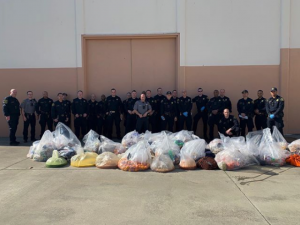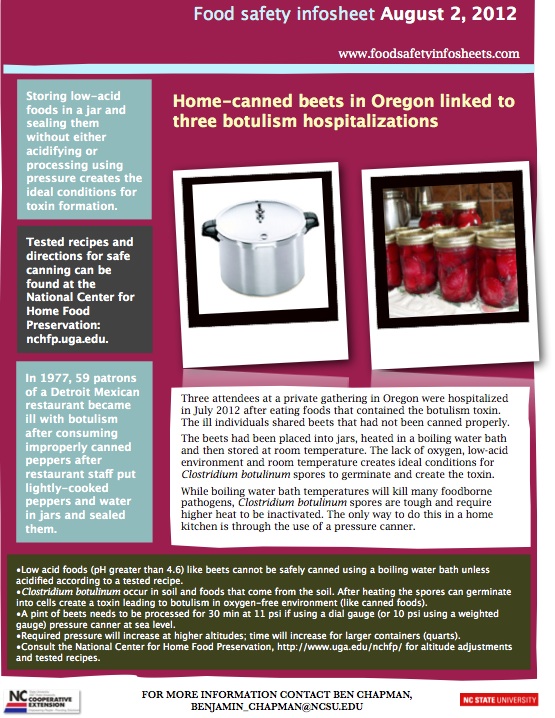The pandemic brought a rise in home canning and food preservation as evidenced by a scarcity of canning supplies on store shelves and from online retailers, perhaps driven by a bountiful harvest by those who planted home gardens in the spring during the early lockdown period.
 The Journal Advocate reports improperly canned food is behind at least some of the several cases of confirmed and suspected foodborne botulism that the Colorado Department of Public Health and Environment (CDPHE) has investigated in the state since September, according to a release from CDPHE Wednesday. Testing from the Centers for Disease Control and Prevention confirmed four of the cases, one is still under investigation, and two test results are pending. All of the confirmed cases occurred along the Front Range, and one of the unconfirmed cases occurred in the Western Slope.
The Journal Advocate reports improperly canned food is behind at least some of the several cases of confirmed and suspected foodborne botulism that the Colorado Department of Public Health and Environment (CDPHE) has investigated in the state since September, according to a release from CDPHE Wednesday. Testing from the Centers for Disease Control and Prevention confirmed four of the cases, one is still under investigation, and two test results are pending. All of the confirmed cases occurred along the Front Range, and one of the unconfirmed cases occurred in the Western Slope.
A majority of the cases appear to be unrelated as no common food item was identified. The last two confirmed cases were the result of an improperly canned shared food made in the same household, prompting a warning from CDPHE about home food safety.
“Botulism does not spread from person to person, so there is no risk to the public. However, these cases are a good reminder of how important it is to properly preserve and handle food in the home,” said Nicole Comstock, deputy branch chief, communicable disease branch.










